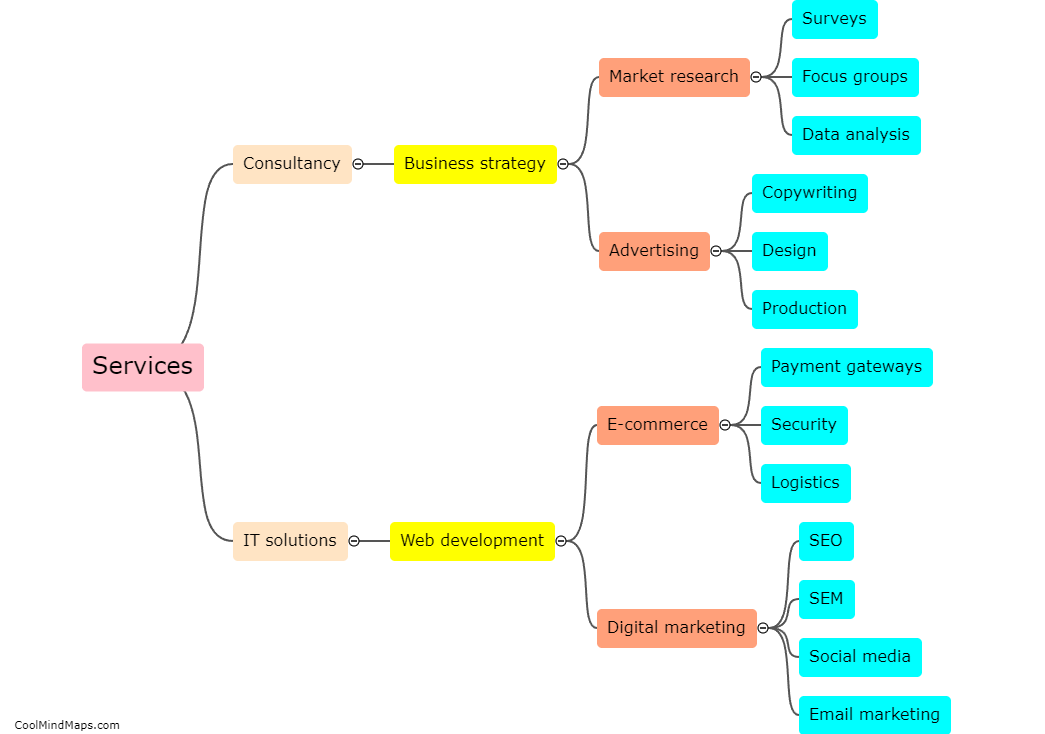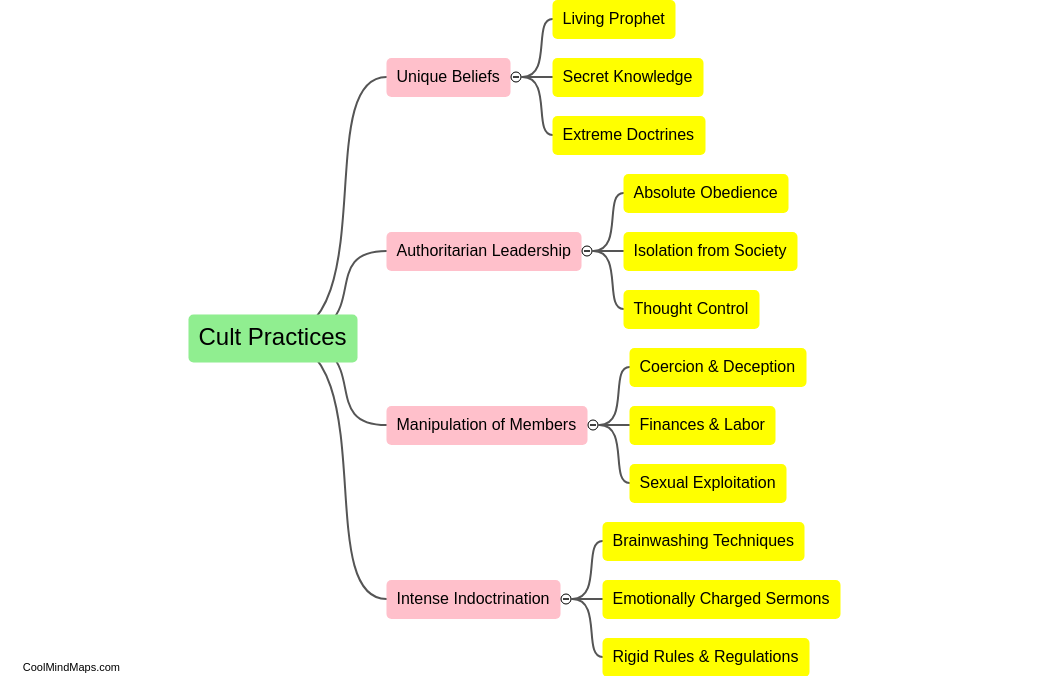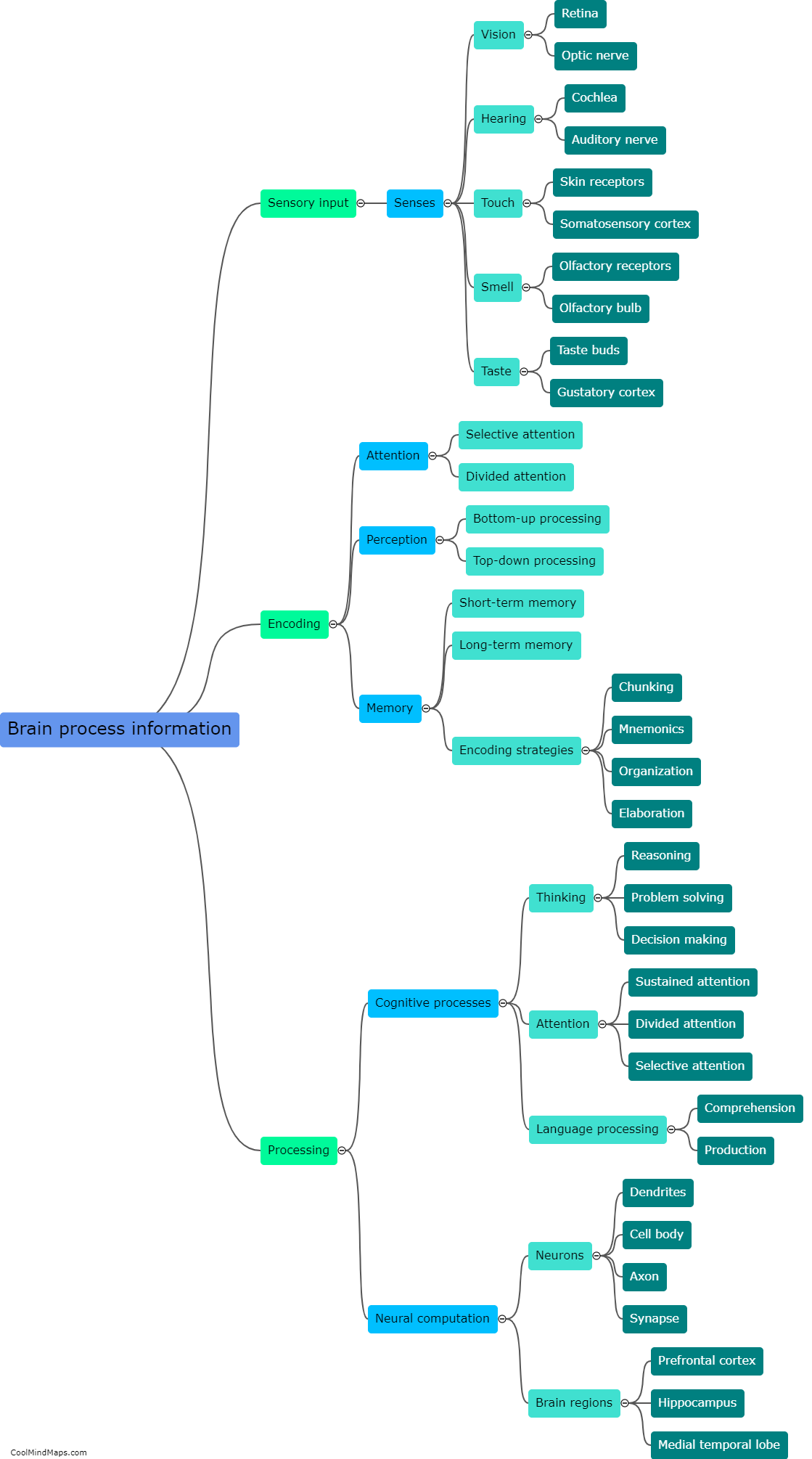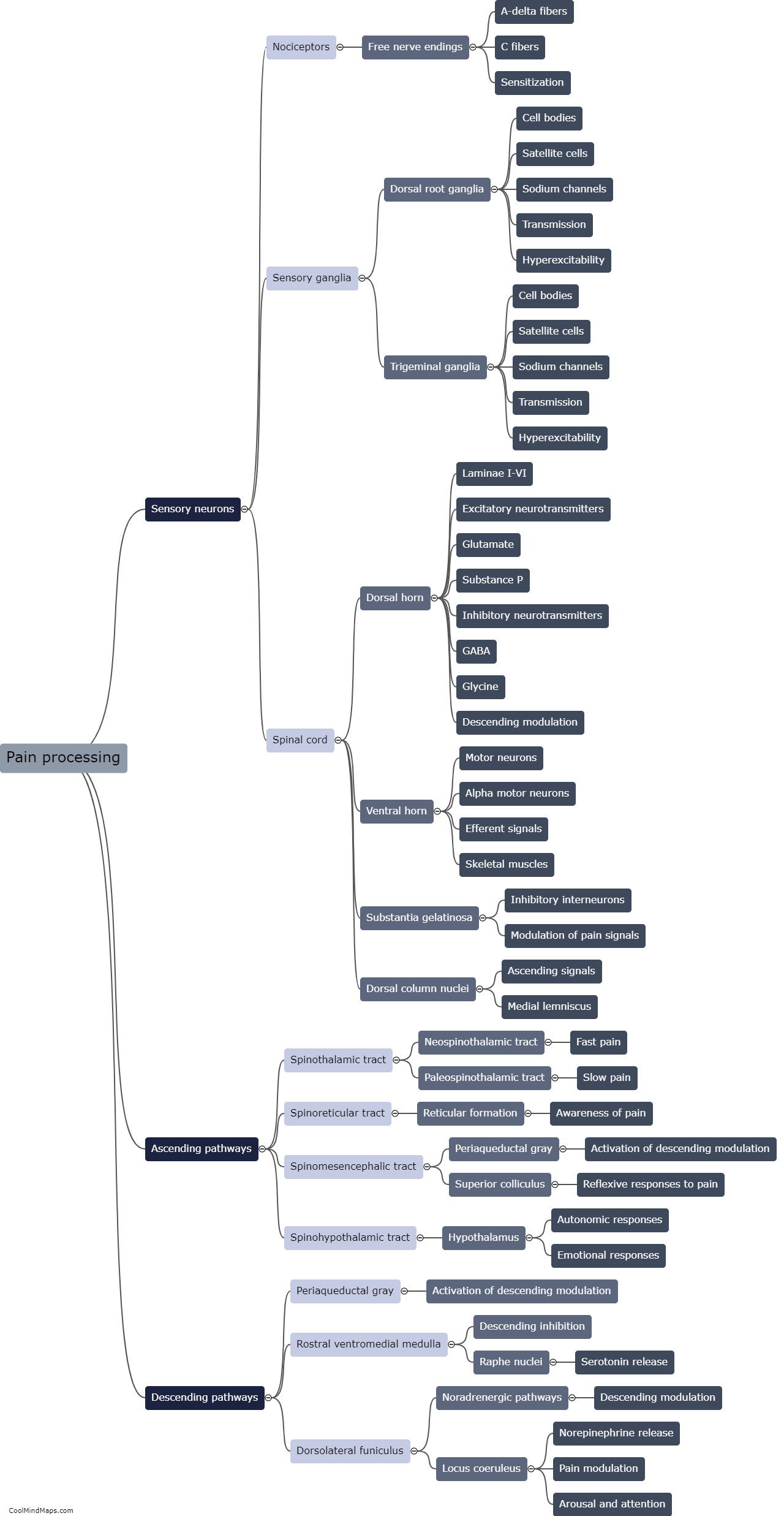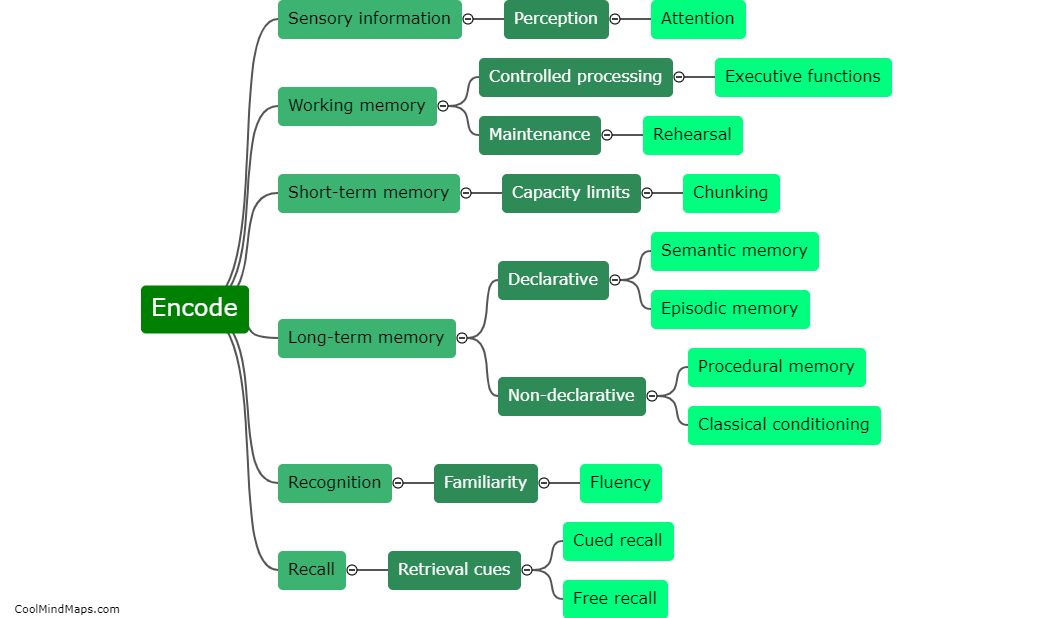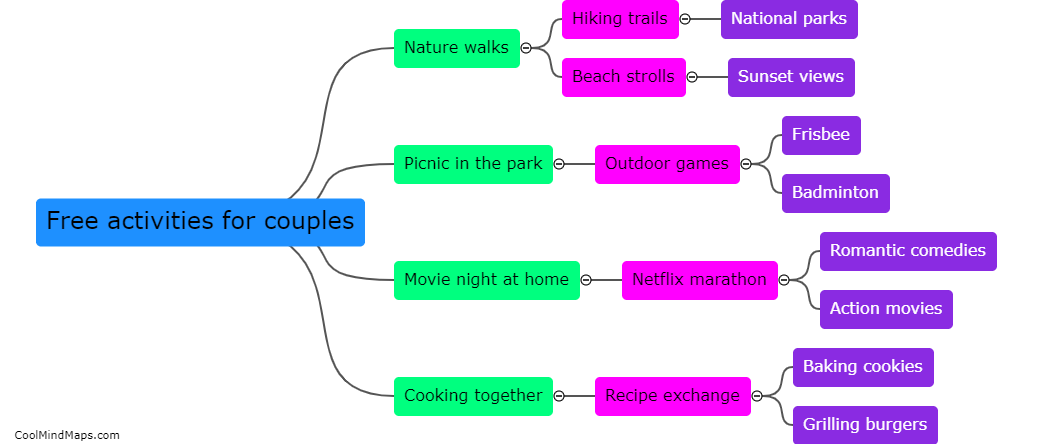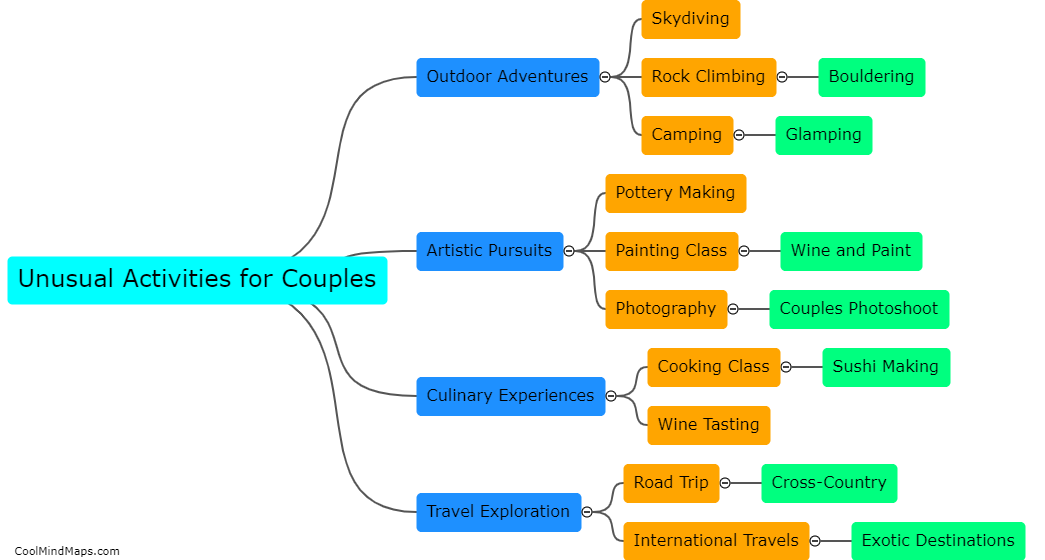What are retrieval cues in memory?
Retrieval cues in memory are stimuli or pieces of information that trigger the recall of a specific memory or knowledge. They act as mental shortcuts that help us access and retrieve information from long-term memory. These cues can be anything that is associated with the memory being sought, such as words, sounds, smells, or even emotions. Retrieval cues work by activating the neural pathways connected to the memory, making it easier for us to retrieve and recall the information. They play a vital role in memory retrieval and can be consciously used to aid in studying, learning, and remembering information.

This mind map was published on 20 October 2023 and has been viewed 112 times.

